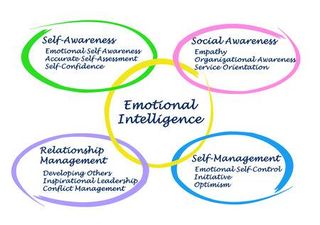Suicide
The Year 2020: New Year, New Decade, New Approach
Less talk, more action in combatting correctional officer suicide.
Posted January 2, 2020

“Some of the most comforting words in the universe are ‘me too.’ That moment when you find out that your struggle is also someone else’s struggle, that you’re not alone, and that others have been down the same road.” – Unknown
It was 1989 when I first started my career in corrections. As I reflect back, so much has changed, mostly positive, from 1989 to 2019 in the manner in which we view and approach punishment and rehabilitation as it relates to criminal offenders. The “get-tough on crime" approach of the 1980s and 1990s, which included mandatory minimum sentencing and other stringent, punitive laws were coupled with the so-called “War on Drugs,” all of which had good intentions from a national policy perspective, but the "get-tough," "lock 'em up and throw away the key" mentality of past decades has largely failed in meeting its intended goal of reducing crime in the United States. However, as a nation, we continue to make great strides in combatting crime and criminals, but we have largely failed our nation's correctional officers—those who work within those concrete, stone, and steel institutions.
When compared to the average U.S. citizen, correctional officers have higher rates of divorce, alcohol abuse, over-medicating (prescription drugs), and domestic violence, along with higher rates of stress, burnout, low morale/job satisfaction, and Post-Traumatic Stress Disorder (PTSD). Most concerning are the suicide rates, which are two to four times higher than that of the average citizen, and as some studies suggest, higher than the suicide rates of our nation's law enforcement officers.
In addition, correctional officers have higher incidences of cardiovascular disease with an average life expectancy that will not exceed age 59. This is not necessarily new information for those of us who work or have worked in corrections, but few outside the profession are aware of the internal demons that some correctional officers battle. Since I am passionate about helping my fellow brothers and sisters in grey, I have used my platform as a university professor for the past few years to educate and provide awareness by publishing numerous articles and presenting at several conferences about the suicide rates of correctional officers, and yet, here we are in 2020, and nothing has changed. Now that we have identified the problem, we need to devise a solution.
We have entered a new year, a new decade, and with that, most of us have shared personal resolutions that we would like to fulfill. Well, I have a personal resolution that I would like to fulfill. I would like to see 2020 as a decade of change. As a social scientist, I can attest to the fact that the research literature has consistently shown that the challenges correctional officers face extend throughout the entire corrections profession. In other words, these concerns are not isolated to a particular prison, or a particular state or geographic region for that matter. Rather, they extend nationally from our smallest jails to our largest prisons. It does not matter if the officer hails from the south, west, north, or east. It is a systemic issue embedded in our profession that can no longer be ignored. The entire culture of American corrections must change if we want to help those who have dedicated their lives (literally) to keeping us safe and secure from those who want to do us harm.
Fun fact (sarcasm inserted): The United States spends more than $80 billion on corrections. Yes, that is a “B” for billion. According to a 2016 Pew Trusts study, more than $8 billion of that $80 billion is spent on prison medical services for the prisoners. So, how much do we spend on mental healthcare for correctional officers? I simply do not know because I could not locate a single national study as I sifted through the various databases. As a researcher, this concerns me because it suggests that we do not care enough about the physical and mental wellbeing of the men and women who keep some of the nation’s most vile humans within the confines of those prison walls. This is purely a guess, but I would say that the amount of funds dedicated to mental healthcare for correctional officers is minuscule at best, especially in comparison to the more than $8 billion we annually spend on medical/psychiatric healthcare for prisoners.
If even a fraction of that $80 billion were allocated to mental healthcare for correctional officers, we would significantly reduce the number of correctional officer suicides, reduce sick time, reduce employee turnover, reduce excessive force lawsuits, and reduce overall healthcare costs for officers. This requires a paradigm shift in thinking in which we become proactive rather than reactive in our approach to mental healthcare. Prevention and intervention are equally important in combatting stress and the physical and mental problems that stem from chronic stress.
Over the decades, we have invested so much time, effort, and money in programs and policies intended to change the thoughts and behaviors of our nation’s criminal offender population, yet we have not invested in the men and women who have chosen to pursue a career which can be thankless and unrewarding most days. Keep in mind that I am not the first to address this topic. I am simply one of many national corrections subject matter experts like Gary Cornelius, Anthony Gangi, Keith Hellwig, Gary York, Brian Dawe, and countless others who share my vision of having 2020 serve as the year (or decade) of positive change in American corrections.
As a former prison administrator turned educator, I want to see mental healthcare weaved into our university textbooks and courses that focus on corrections, within our correctional officer training academies, and to be continuously addressed within our on-the-job training. Mental healthcare cannot be a one-and-done training or a few paragraphs in a corrections textbook. We need to address the stigma that still exists, especially within criminal justice. As a profession, we concentrate heavily on the hard skills in training our officers how to physically defend themselves, which is obviously necessary, but very little attention is dedicated to soft skills, which are equally important because soft skills place emphasis on the mental aspects of working in corrections such as coping/resiliency skill-building. Stress is inevitable; however, the way in which we react and respond to stressful situations can be learned and improved.
For example, in a 2017 publication, I discussed the importance of training correctional officers in developing their emotional intelligence skills. Emotional intelligence can be particularly important for those of us who serve in corrections. Correctional officers are often required to adapt to situations that people outside the criminal justice/public safety fields rarely encounter. On any given day, an officer will work with hundreds of prisoners, who collectively tend to be manipulative, deceptive, and at times, violent.
Our safety, and that of our co-workers, inmates, and visitors, is dependent on our ability to remain in control of our emotions at all times. Even when faced with a volatile or violent situation, we must act with the utmost integrity and ensure that our subsequent actions remain within the legal and departmental boundaries of our jobs. Harnessing and honing our emotional intelligence can help us in quickly, effectively, and professionally assessing each situation.

At the basis of emotional intelligence is the ability to monitor our own emotions as well as the emotions of others. This requires four essential skills: self-awareness, self-management, social awareness, and relationship management. Collectively, these four skills can be further divided into two categories, namely personal competence and social competence. Self-awareness and self-management make up your personal competence, which involves controlling your individual emotions. Social awareness and relationship management make up your social competence, which is more concerned with how those emotions influence your interactions with other people.
There is much work to be done, but with a new year, a new decade, the time is now. For additional information on the topics discussed in this article, please check out my Officer Success Training Series.




